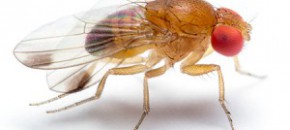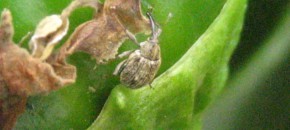Pathogens such as Fusarium, Pythium, Phytophthora, Thielaviopsis and Rhizoctonia that cause pre- and post-emergent damping-off can cause serious problems in organic (and conventional) transplant production. The key to controlling and/or suppressing damping-off pathogens with biological controls is keeping the biological populations high and continually present on root surfaces of the host, and by following good […]
Continue reading...Understanding Damping-off Pathogens in Transplant Production
Damping-off is caused by a number of important vegetable pathogens and is very common during transplant production and early-spring. Damping-off can kill seedlings before they break the soil line (pre-emergent damping-off) or kill seedlings soon after they emerge (post-emergent damping-off). Common pathogens that cause damping-off include Pythium, Phytophthora, Rhizoctonia and Fusarium spp. It is extremely […]
Continue reading...Grower Survey: Spotted Wing Drosophila Management

Deadline: May 1, 2016 Survey Purpose: To measure the effects of spotted wing drosophila (SWD) on fruit crop production. Results will be used to develop national research and extension projects to minimize future impacts of SWD. Survey website: https://survey.ncsu.edu/swd/ Growers of blueberry, raspberry, blackberry, strawberry, and cherry who make pest management decisions are invited to participate […]
Continue reading...Pepper Weevil Concerns from Florida

In an April 4, 2016 email message from Gene McAvoy, Extension Director, Hendry County, Florida, he says that Florida pepper crops have above normal pepper weevil infestations this spring. Strong market prices are enticing farmers to hold on to their pepper plantings longer than usual allowing weevil populations to increase. What this may mean for […]
Continue reading...2016 Fungicide Resistance Management Guidelines Available
The 2016 Fungicide Resistance Management Guidelines for Vegetable Crops is now available. This free publication, targeted to New Jersey and the surrounding mid-Atlantic region, helps vegetable growers understand and manage potential fungicide resistance development on their farm. In order to understand and use fungicide resistance management strategies effectively, first learn how and why fungicide resistance may develop; a series […]
Continue reading...Greenhouse Disease Management: Seed Treatment
All seed used in transplant production, as well as any transplants brought into the greenhouse should be certified ‘clean’ or disease-free. Important diseases such as Bacterial leaf spot of tomato and pepper can cause major problems in transplant production if introduced in the greenhouse. Bacterial leaf spot of tomato and pepper can be seed-borne […]
Continue reading...